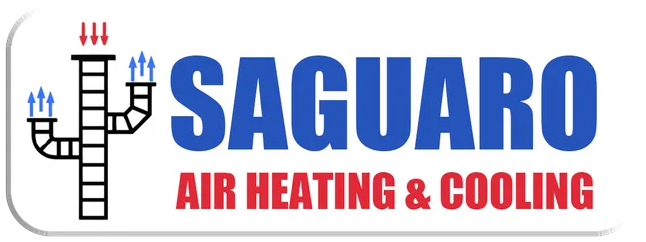The Ultimate Guide to Choosing the Right HVAC System for Your Home
When it comes to creating a comfortable living environment, your HVAC (Heating, Ventilation, and Air Conditioning) system plays a pivotal role. It regulates your home’s temperature, controls humidity, and ensures proper airflow. Choosing the right HVAC system is crucial not only for comfort but also for energy efficiency, long-term savings, and air quality. In this ultimate guide, we’ll walk you through everything you need to know to make an informed decision when selecting an HVAC system for your home.
1. Understanding Your Heating and Cooling Needs
Before choosing an HVAC system, it’s essential to understand your home’s specific heating and cooling needs. Several factors influence this:
- Home Size: The square footage of your home significantly affects the size of the HVAC system required. A larger home may need a more powerful system to properly heat or cool all areas.
- Climate: Your local climate plays a big role in your HVAC needs. Hot, dry climates may require more efficient cooling systems, while cold climates may need a heating system that can withstand freezing temperatures.
- Insulation: Homes with poor insulation may lose more heat in the winter or have a harder time staying cool in the summer. In these cases, a more robust HVAC system may be necessary.
2. Types of HVAC Systems
There are several types of HVAC systems available, each with its own advantages. Understanding the different options will help you make the best choice for your home.
Central Air Conditioning Systems
Central AC units are one of the most popular choices for homes. They work by distributing cooled air through ducts to multiple rooms. These systems are ideal for large homes with existing ductwork. They offer consistent cooling and air filtration.
Heat Pumps
Heat pumps are a versatile option that can heat and cool your home. They transfer heat from the outside air to the inside during the winter and reverse the process in the summer. This system is ideal for moderate climates and can be more energy-efficient than traditional heating and cooling methods.
Furnaces
Furnaces are typically used for heating and can be powered by gas, electricity, or oil. They distribute heated air through ductwork and are great for colder climates. For homes in colder regions, a furnace is often paired with an air conditioner to create a full HVAC system.
Ductless Mini-Split Systems
These systems are ideal for homes without existing ductwork or for room-by-room temperature control. Ductless mini-split systems consist of an outdoor compressor unit and indoor air handling units. They are highly energy-efficient and can be easily installed in smaller homes or spaces.
Hybrid Systems
A hybrid HVAC system combines a furnace with a heat pump. The furnace provides heat during the cold months, while the heat pump works during milder temperatures. These systems are great for homeowners who want to maximize efficiency and reduce energy costs.
3. Energy Efficiency
When choosing an HVAC system, energy efficiency should be a top priority. An energy-efficient system will not only reduce your carbon footprint but will also save you money on energy bills over time. Look for systems with a high SEER (Seasonal Energy Efficiency Ratio) for cooling efficiency and a high AFUE (Annual Fuel Utilization Efficiency) for heating efficiency.
The ENERGY STAR label is a good indicator that the system meets or exceeds energy efficiency standards set by the U.S. Environmental Protection Agency (EPA).
4. Consider Your Home’s Air Quality
Air quality is an often-overlooked factor in choosing an HVAC system, but it’s just as important for your comfort and health. Poor air quality can contribute to allergies, respiratory problems, and even discomfort in your home.
Consider an HVAC system with built-in air filtration and air purifiers to help remove allergens, dust, and other airborne particles. Some advanced HVAC systems also offer humidifiers and dehumidifiers, which help maintain optimal humidity levels and improve overall comfort.
5. Budget and Long-Term Costs
The initial cost of an HVAC system is only part of the equation. While high-efficiency systems may come with a higher price tag, they will often save you money in the long run by reducing energy bills. Consider the following costs when budgeting for an HVAC system:
- Installation Costs: The complexity of the installation, including whether new ductwork is required, will affect the price.
- Maintenance and Repairs: Regular maintenance is essential to extend the life of your HVAC system. Consider the potential costs of annual tune-ups, repairs, and replacement parts
- .
- Energy Costs: Energy-efficient models may cost more upfront but will save you on utility bills. Choose a system that matches your home’s needs to avoid paying for unnecessary excess capacity.
6. Professional Installation and Ongoing Maintenance
Choosing the right HVAC system is only part of the equation. Proper installation and regular maintenance are key to ensuring the system performs efficiently over its lifespan. Always work with a licensed and experienced HVAC contractor who can assess your home’s needs and help you select the best system.
Regular maintenance, including cleaning filters, checking refrigerant levels, and servicing the system before peak heating or cooling seasons, will prolong the life of your HVAC system and keep it running smoothly.
Conclusion
Selecting the right HVAC system for your home can seem overwhelming, but with the right information and guidance, you can make an informed choice. Keep your home's size, climate, and specific needs in mind when evaluating your options. Choose a system that balances energy efficiency, comfort, and air quality, and don't forget the importance of professional installation and ongoing maintenance.
By following these tips, you’ll ensure that your new HVAC system provides optimal performance, cost savings, and comfort for years to come.
For personalized guidance and expert installation services, contact a trusted HVAC professional today!

